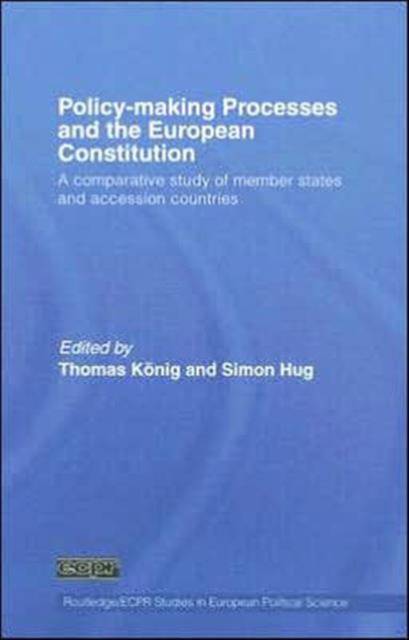
- Afhalen na 1 uur in een winkel met voorraad
- Gratis thuislevering in België vanaf € 30
- Ruim aanbod met 7 miljoen producten
- Afhalen na 1 uur in een winkel met voorraad
- Gratis thuislevering in België vanaf € 30
- Ruim aanbod met 7 miljoen producten
Policy-Making Processes and the European Constitution
A Comparative Study of Member States and Accession Countries
Omschrijving
This new volume presents a wealth of fresh data documenting and analyzing the different positions taken by governments in the development of the European Constitution.
It examines how such decisions have substantial effects on the sovereignty of nation states and on the lives of citizens, independent of the ratification of a constitution. Few efforts have been made to document constitution building in a systematic and comparative manner, including the different steps and stages of this process. This book examines European Constitution-building by tracing the two-level policy formation process from the draft proposal of the European Convention until the Intergovernmental Conference, which finally adopted the document on the Constitution in June 2004. Following a tight comparative framework, it sheds light on reactions to the proposed constitution in the domestic arena of all the actors involved. It includes a chapter on each of the original ten member states and the fifteen accession states, plus key chapters on the European Commission and European Parliament.
This book will be of strong interest to scholars and researchers of European Union politics, comparative politics, and policy-making.
Specificaties
Betrokkenen
- Uitgeverij:
Inhoud
- Aantal bladzijden:
- 336
- Taal:
- Engels
- Reeks:
- Reeksnummer:
- nr. 46
Eigenschappen
- Productcode (EAN):
- 9780415385077
- Verschijningsdatum:
- 27/07/2006
- Uitvoering:
- Hardcover
- Formaat:
- Ongenaaid / garenloos gebonden
- Afmetingen:
- 161 mm x 242 mm
- Gewicht:
- 621 g

Alleen bij Standaard Boekhandel
Beoordelingen
We publiceren alleen reviews die voldoen aan de voorwaarden voor reviews. Bekijk onze voorwaarden voor reviews.










